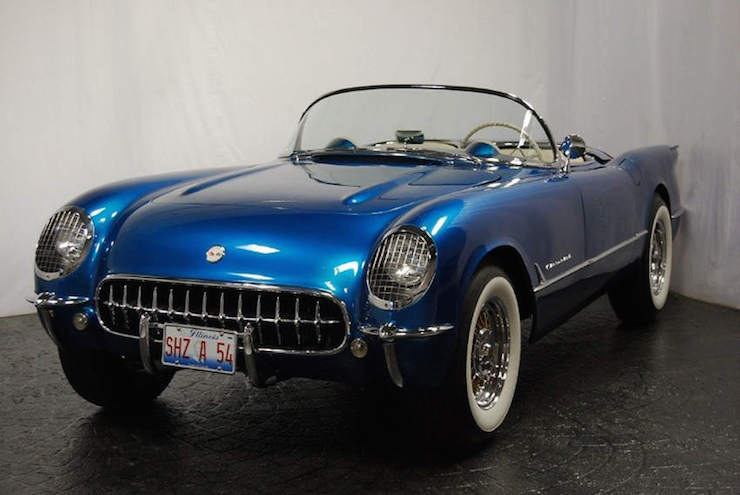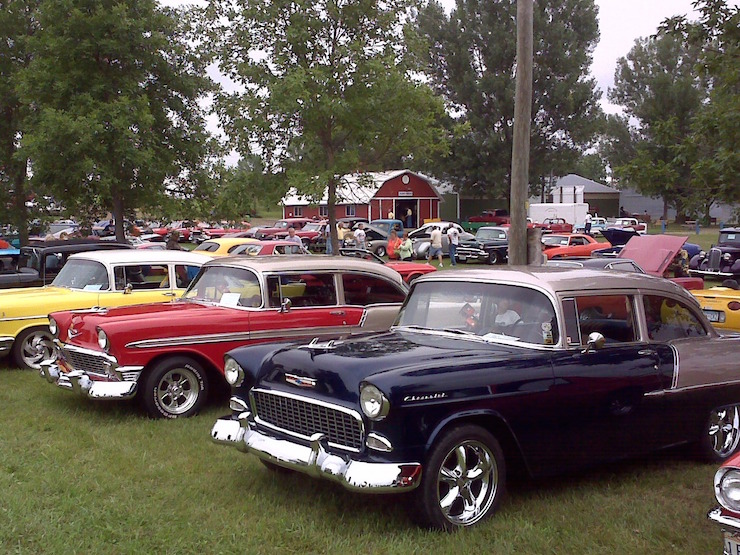How Classic Cars Are Usually Judged (or How They Should Be)
You have an impressive ride, there’s no doubt about that — so why didn’t it sweep the board at the latest car show you entered it in? Mainly because the way car shows are standardized takes a lot of the “fun” aspects out of judging. That super custom paint job, or gen III engine swap isn’t going to get a trophy at most classic car shows. What most classic car show judges value most is authentic restoration, which some people view as "correct" and some view as "boring."
Therefore, if you want to take top prize at a lot of classic car shows, a 100 point restoration is the “easy” way to do it. But of course, there's nothing easy about a 100pt resto, not to mention, there'a s LOT to be said for classics that aren't 100% classic.
Still, if you're entering a contest at a car show, here’s an overview of how most classics are evaluated.

Pro Level Car Show Judging
There are many different sanctioning bodies for classic cars. Most are similar to the Classic Car Club of America — you can download their handbook here. Here are the basics of how a show car at this level of competition is judged.
What the judges are looking for:
- The judges are instructed that a car does not have to be perfect but to look for an “excellent car”
- Judgement is not given based on the car it's parked next to or any other car in the show. Judgement is against the condition the car was originally delivered in.
- Judges are not supposed to communicate with each other about the vehicles unless they need help determining things like if the wipers work, lights come on, etc.
- Points are taken for damaged, dirty, or missing parts.
- Authenticity points are taken away when a part is chrome when it was originally painted/brushed/etc.
How to be disqualified:
- The car has a replica body
- The braking system isn’t authentic
- There is no approved fire extinguisher
- Non-safety glass in exterior windows
- Non-authentic transmission
- Non-authentic engine
Finally, Here are the main authenticity deductions entries have to deal with (the exception to any of these would be if the factory included these details):
- Turn signals are modern or commercial
- The car has sealed beam headlights
- Hose clamps are incorrect for the era
- The exterior of the wiring is plastic
- Upholstery is made of synthetic materials
- Vinyl or plastic is used on tops or boots
- Non-authentic air conditioning
- Non-authentic power steering
Summing up, judges following the Classic Car Club of America rulebook are both under strict requirements and requirements that are somewhat confusing and surprisingly subjective. The pickiness of top tier car show judging doesn’t even stop there; there’s all kinds of rules beyond these that entries have to follow.
The key take away here: If you’ve entered a show and didn’t walk away winning a category, it might not have anything to do with how awesome your car is. The judge just might not have liked it, or might have dinged your car for modern amenities like power brakes, a Vintage Air A/C kit, etc..
When Things Get a Lot More Basic

Say you’re not a die-hard collector and your car isn’t a pro-show car, but you still want to enter it into local shows that are put on for charities, by local businesses, etc. Entering these kinds of shows is generally very enjoyable and, as a “casual” car show participant, you’ll have the best chances of winning.
Of course, judges at these shows are inconsistent and subjective too...crowd popularity often influences local judges, as does their knowledge or ignorance of particular models and modifications. This is why you’ll often see vehicles being "staged," such as a Bel Air with a drive-in tray on the window and fake milkshake on it. Some car show participants get pretty elaborate to grab attention.
Here are the typical judging categories for causal car shows:
- Best by Year/Generation
- Best of Make/Model
- Cleanest
- Best Work in Progress
- Crowd Favorite
- Overall Event Winner
But the cool part is that winning - or losing - a local show for a charity or business promotion isn't really a big deal. The events are just for fun to begin with, and odds are good you'll benefit more from making friends with other local classic owners than you would winning a trophy.
Summing up, if you're dedicated to winning the pro shows, the best path is to build a perfect 100pt restoration. If you're not interested in taking that approach, than it's good to remember that local shows are often judged by amateurs. Crowd favorites, clever staging, etc. can sway judges to overlook defects or problems...you can either try these same tactics to increase your odds of winning, or you can decide not to care and just have fun.